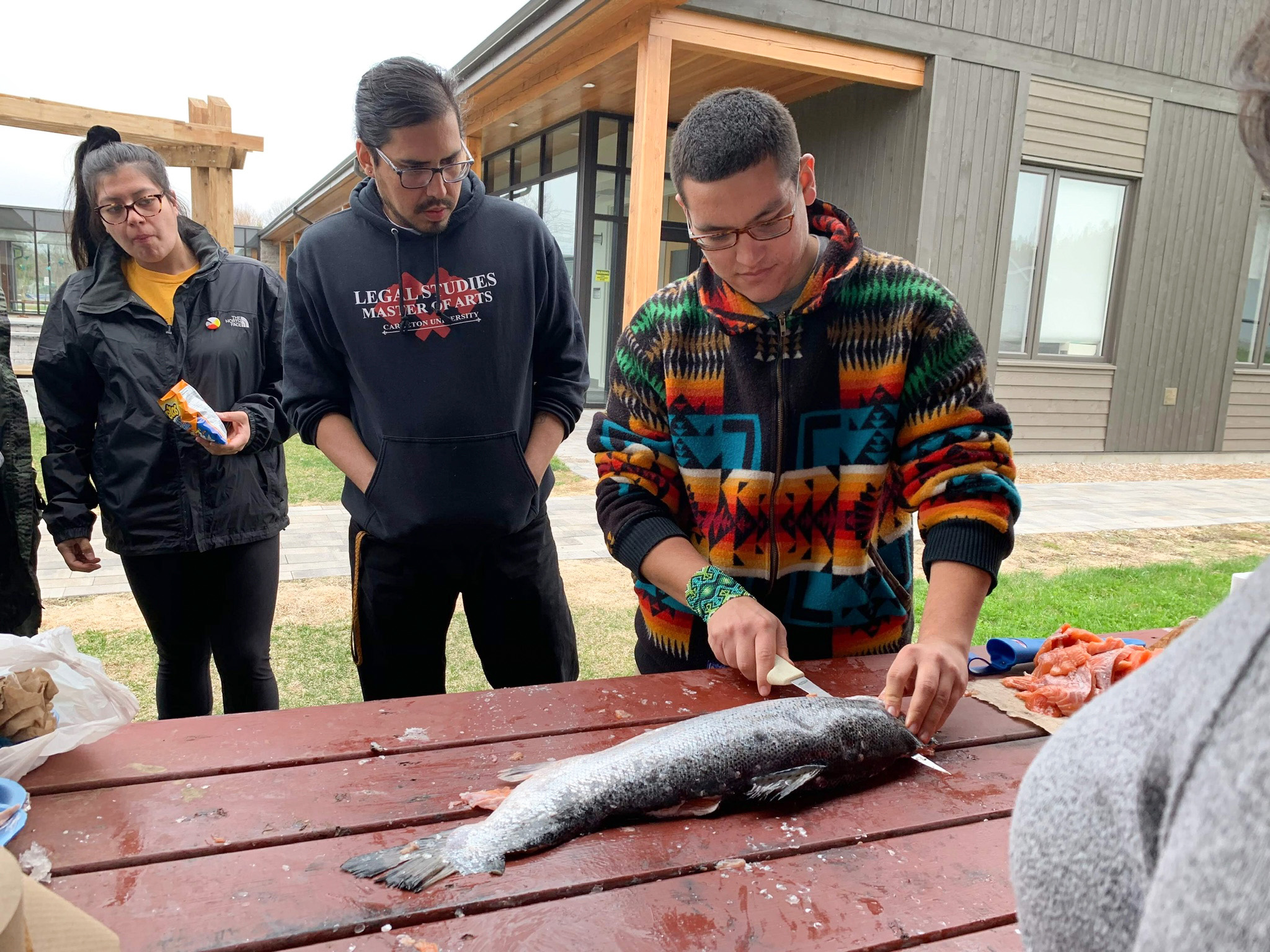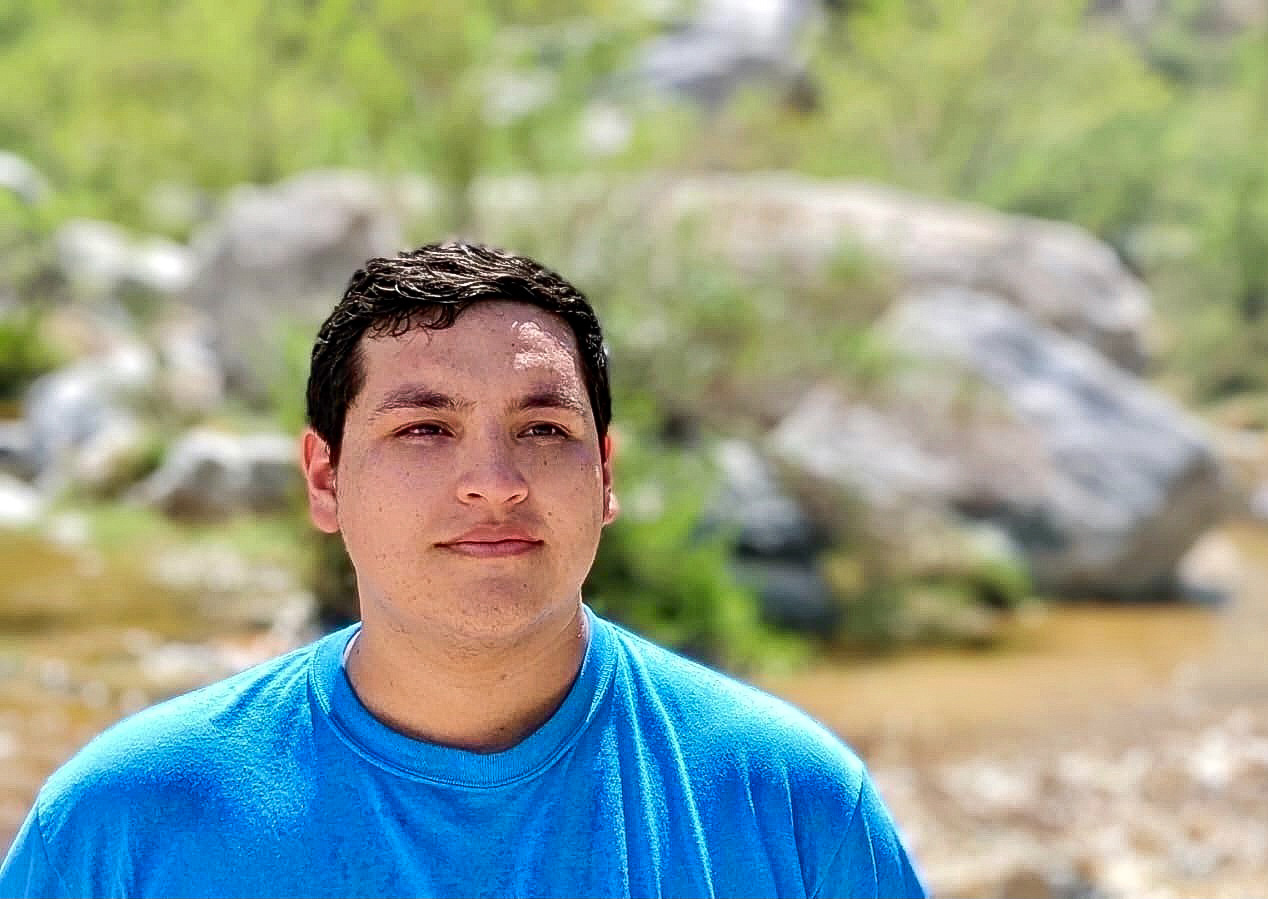Meet the Harvard medical student fighting for Indigenous health access, representation
Native American doctors are scarce. Victor Lopez-Carmen hopes to change that.
Growing up in Tucson, Arizona, around the Yaqui communities, Victor Lopez-Carmen said boys in his low-income neighborhood faced constant social pressure to use drugs and join gangs. Few of his classmates made it to college, he said. Many wound up in jail.
Now, Lopez-Carmen, who is Yaqui and Dakota, is a Harvard Medical School student fighting to break this pattern, advocating for Indigenous representation in medicine and greater healthcare access. In 2020, he co-founded the Translations for Our Nations initiative, which translated COVID-19 information into more than 40 Indigenous languages in over 20 countries.
Lopez-Carmen can trace his exposure to activism back to his early childhood on the Pascua Yaqui reservation, attending its Boys and Girls Club while his mother worked for the tribe's Yoemem Tekia Foundation.
He recalled being carried at Indigenous rights protests his parents attended and tagging along at International Indian Treaty Council meetings -- his aunt is the executive director.
"It was a lot of fun as a kid because I would just be able to run around with the other Native kids and have a good time," he said. "But I think it also stuck with me that we were doing something good for the community. And we knew that we were there because something was unjust."

Now, Lopez-Carmen is leading his own protests and movements, becoming a spokesperson for his generation as a recent co-chair of the United Nations Indigenous Youth Caucus.
But Lopez-Carmen said there was a time he almost shared the same fate as many of his grade school peers — had it not been for a visit he took in seventh grade to a Yaqui village in Sonora, Mexico, where a fireworks accident gave him severe third-degree burns.
"[My family] took me to the nearest hospital, which is about an hour and a half away. They couldn't treat me," Lopez-Carmen recounted.
Lopez-Carmen ultimately had to travel back across the border to receive the care he needed, ending up at a burn center in Phoenix. He was incapacitated in a hospital bed for over a month while he recovered.
Inspired by his own doctors to become a physician, Lopez-Carmen said his experience of having to travel far distances to receive vital treatment also brought the lack of healthcare in Indigenous communities within the U.S. and abroad into sharp relief.
Native American people have a lower life expectancy and higher rates of chronic diseases than all other racial and ethnic groups in the U.S., according to the U.S. Indian Health Service.

These systemic health issues can be attributed, in part, to a lack of medical care access and the effects of colonization, which decimated tribes' healthy food sources, Lopez-Carmen said.
"What was the food [the U.S. government] gave us instead? It was mainly starch, flour, oil — really unhealthy things that caused a lot of disease, a lot of bad eating patterns," he said.
There are also only 3,400 Native American physicians nationwide, according to the American Medical Association. In 2021-2022, less than half of M.D.-granting medical schools in the U.S. enrolled more than five Native students, and 8% enrolled none, the Association of American Medical Colleges reported.
The absence of Indigenous faculty and physicians can result in a lack of culturally competent curricula in medical school classrooms and care in hospitals, Lopez-Carmen said. Only 11 percent of medical degree-granting institutions reported that they included Native American health content in their curricula, as of 2017.
This has manifested in hospitals prohibiting traditional practices like burning sage in Native patients' rooms, and patients being misdiagnosed because their ceremonial scars were mistakenly listed on their patient charts as self-mutilation, Lopez-Carmen said.
Native medical students like Lopez-Carmen versed in both traditional and Western medicine can play a critical role in promoting broader respect for Indigenous practices, according to Chief Arvol Looking Horse, spiritual leader of the Great Sioux Nation and 19th keeper of the Sacred White Buffalo Calf Pipe and Bundle.
"In my position as a traditional medicine person, a spiritual leader, I believe in our traditional ways, our traditional medicine. But I did share [with him] that, 'I'm glad that you're in that position,'" Looking Horse told ABC News.
"We need Victor and people like him to succeed so our people can trust people like him," he added.

Last year, Lopez-Carmen penned an op-ed in the Boston Globe about the lack of Native Americans in medicine, which caught the attention of Harvard medical professor Dr. Valerie Dobiesz.
Together, they developed the Ohiyesa Premedical Program, which brings Indigenous students and graduates from tribal and community colleges to train at Harvard Medical School and Brigham and Women's Hospital in Boston.
During the program, students received first-aid training, performed simulations, shadowed physicians, and scrubbed for real surgeries, accruing more than 50 hours of clinical exposure. They also delivered their own presentations to Harvard physicians on Indigenous health issues.
"Such an important part of the program is [Victor's] ability to understand the students and their context. He informed pretty much all of our curriculum," Dobiesz told ABC News. "He is really an extraordinary agent of change."
The program was named after Ohiyesa, also known as Dr. Charles Eastman, the first Native American man to become a physician in the U.S. and Lopez-Carmen's great grandfather.
During the 1862 Dakota Uprising when many of Eastman's family members were killed, his father told him, "'You need to learn our language. You need to help our people because everyone's dying. We need a doctor,'" Paula Looking Horse, a Dakota artist and Chief Looking Horse's wife, told ABC News.
Upon Eastman's graduation from Boston University School of Medicine, he worked at the Pine Ridge Indian Reservation in South Dakota. After the 1890 Wounded Knee Massacre, Eastman was the only physician survivors trusted to treat them given their shared language, traditions and trauma, Paula Looking Horse said.
Like his ancestor, Lopez-Carmen said he hopes to eventually return home to serve his community, planning to work in pediatrics. This year, he is taking a break from medical school to focus on learning Lakota, his Indigenous language.

Pascua Yaqui Tribe Chairman Peter Yucupicio called Lopez-Carmen a "beacon" for other Native kids.
"He gets a chance to pursue modern medicine to help us live longer and be healthier," Yucupicio told ABC News. "I think it's beautiful that he wants to come back."
Lopez-Carmen says he has another program in the works at Harvard through which the university's medical students would rotate through the Pascua Yaqui reservation to learn about Indigenous health.
"I want to do work in the clinic," Lopez-Carmen said. "But at the same time, I want to be with the community."




